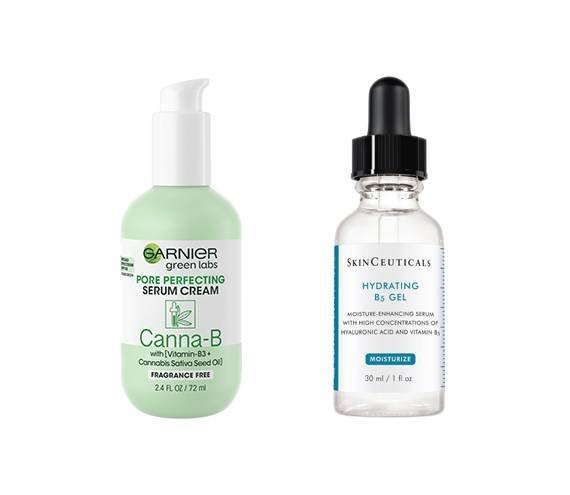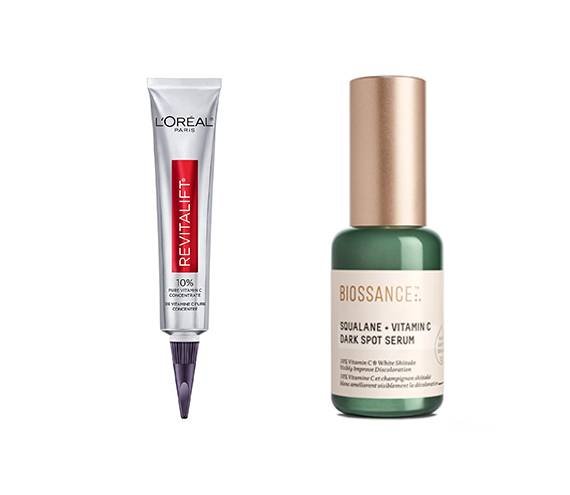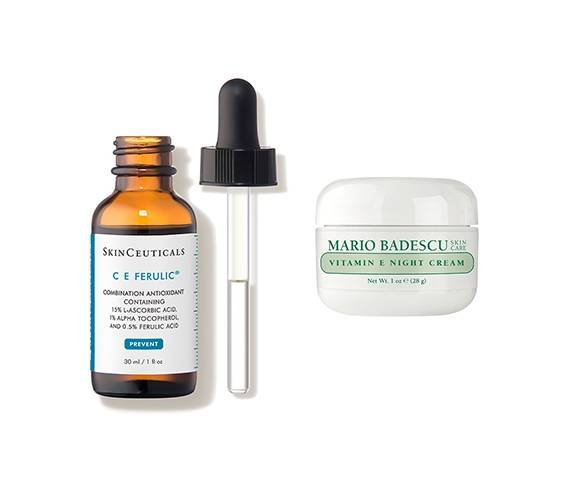The Ultimate Guide to Vitamins in Skin Care
February 09, 2021The importance of getting your daily dose of vitamins — whether through supplements or food itself — cannot be understated. The same can be said for your skin. Vitamins are a huge part of skin care and have many benefits, from addressing discoloration to reducing the appearance of fine lines and wrinkles. To learn more about what vitamins can do for skin and how to incorporate them into your routine, we chatted with Dr. Rebecca Kazin, board-certified dermatologist based in Washington DC. Read on for the ultimate skin-care guide to vitamins A, B, C and E.
Vitamin A
In skin care, vitamin A is known as retinol and it’s commonly found in anti-aging skin-care products. Kazin says that retinol can help increase surface skin turnover, minimize the appearance of pores, and help slow down excessive oil production.
“Every retinol is different,” says Kazin. “Some [retinols] have a technology where the delivery system is better and time-released.” This means that the concentration of the ingredient doesn’t simply get dumped onto the skin at once, which she says can lead to irritation. Also remember that your skin needs to build up a tolerance to retinols, so you should start with a low concentration of the ingredient.
Our favorite vitamin A products to try: L’Oréal Paris Revitalift Derm Intensives Night Serum with 0.3% Pure Retinol, and Versed Press Restart Gentle Retinol Serum.

Vitamin B
When we think of B vitamins, biotin typically comes to mind. This vitamin is buzzed about in the hair industry since it’s been shown to help strengthen strands. There are subclasses of vitamin B that are found in skin-care products, like vitamin B5 (pantothenic acid) and vitamin B3 (niacinamide). According to NCBI, pantothenic acid is known to moisturize the skin, while niacinamide has anti-inflammatory properties that can calm and even out skin discoloration and tone.
Our favorite product with vitamin B3 to try: Garnier Green Labs Canna-B Pore Perfecting Serum Cream Sunscreen Broad Spectrum SPF 30. Our favorite vitamin B5 product to try: Skinceuticals Hydrating B5 Gel.

Vitamin C
Vitamin C, or l-ascorbic acid, is an antioxidant.“Vitamin C neutralizes free radicals formed by pollution, smoking and sun exposure,” Kazin says. Just like retinol, Kazin tells us that not every vitamin C found in skin care is the same. She says to look for stabilized concentrations or else the ingredient may irritate your skin. “Preparations should be in dark bottles to avoid exposure to light,” she says. Light exposure can break down the product, causing them to be less effective.
Our favorite vitamin C products to try: L’Oréal Paris Revitalift Derm Intensives 10% Pure Vitamin C Serum and Biossance Squalane + Vitamin C Dark Spot Serum.

Vitamin E
“You’ll find vitamin E in a lot of soothing, replenishing balms,” Kazin says. Vitamin E can also help to protect surface skin and plays an important part in anti-aging skin-care routines. According to NCBI, it has photoprotective properties that can help protect the skin from free-radicals caused by UV rays.
Our favorite vitamin E products to try: Skinceuticals C E Ferulic and Mario Badescu Vitamin E Night Cream.

Design: Hannah Packer
Read More:
The Best Under-Eye Masks, According to Our Editors
A Beginner’s Guide to Using Retinol
Drugstore Skin-Care Products Under $25